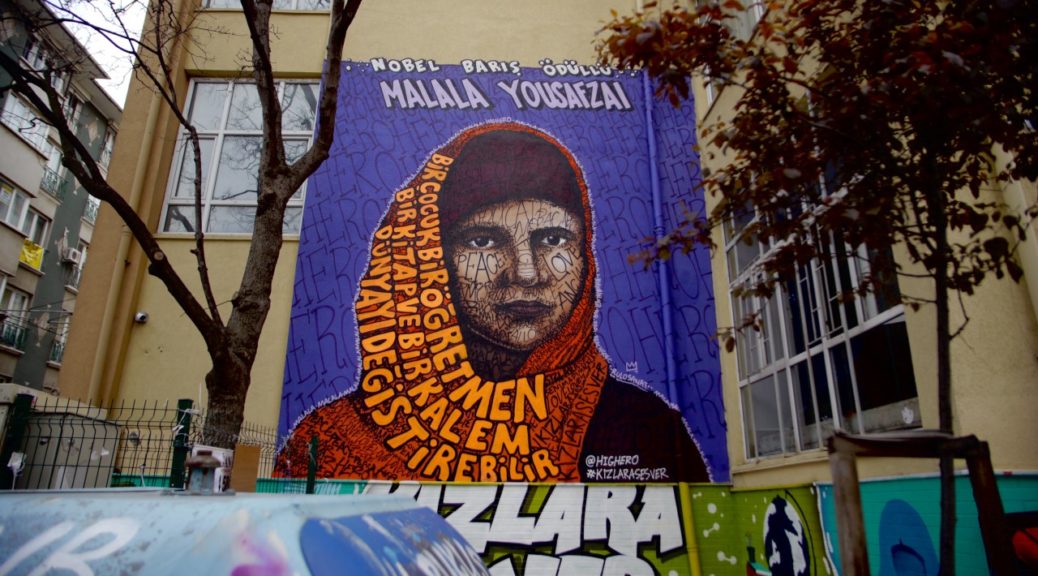By Meghna Sathiapalan
Imagine being on the hit-list for one of the most ruthless organizations in the world. Now imagine being a fourteen-year old on that list, a young girl fighting for female education in rural Pakistan. How would you react to being targeted for speaking up about the lack of education, what some would call a basic human right?
During an interview with Jon Stewart, former host of The Daily Show, Malala Yousafzai, a young Pakistani girl who actually had to survive the hypothetic question above, gave the following answer:
“I started thinking about that and I used to think that the Talib would come and he would just kill me, but then I said if he comes, what would you do Malala? Then I would reply to myself, Malala just take a shoe and hit him, but then I said, if you hit a Talib with your shoe, then there would be no difference between you and the Talib. You must not treat others with cruelty, you must fight others, but through peace and through dialogue and through education. Then I said I would tell him how important education is and that I even want education for your children as well and I would tell him, that’s what I want to tell you, now do what you want.”
This quote not only left Jon Stewart speechless, but also enticed me to read more about this amazing girl. I learned that, after posting on a global forum about being restricted from going to school, the Taliban actually threatened to kill Malala for her simple words. Her first instinct was to fear for her parents’ safety because, as she later mentions in her interview, she didn’t think any group would be capable of killing a child. However, one day on her way to school, Malala’s bus was stopped by Taliban militants who swiftly boarded and demanded for the kids to reveal which of the bus-riding girls was Malala. In terror, a few of the child passengers looked hesitantly at Malala, at which point one of the militants walked up to her and shot her in the head.
This could be the tragic story of a martyr who dies in the pursuit of women’s education but life sometimes works in strange ways. By some twist of fate, the point blank bullet narrowly missed her brain and ended up lodged in her neck, allowing her to live. Upon recovery, despite minor face paralysis, she became an ambassador for women’s education, continuing to speak about it’s importance at conferences and interviews worldwide, and even at the United Nations. She then started the Malala Fund, helping empower women in Syria and Lebanon, and published her bestselling biography I am Malala. And at 17, she became the youngest recipient of the Nobel Peace Prize.
Malala epitomizes leadership, a person who fearlessly stands up for change and continues to spread her message even after such brutal circumstances. Her courage, determination, and ultimate kindness are traits every leader should strive to possess. And her fight is a daily reminder of how lucky we, at USC and in the United States in general, are to receive a good education without struggle and without fear for our lives. Some would call education a basic human right, but the sad truth is that it’s not a right for most people; it’s a privilege and one I I feel many of us take for granted.
Before we moan about the horrors of taking a midterm, let’s remember that the real horror would be not having the right to take a midterm in the first place. I’m with you Malala; thank you for being my inspiration!
Featured image from Wikipedia
Megs, or Meghna, moved to the US from Saudi Arabia two years ago and loves USC! She’s a senior studying Business Administration and Communication Design. In her free time, she writes, goes to movies with her friends, and explores LA because it’s such a vibrant city with so much to do.

